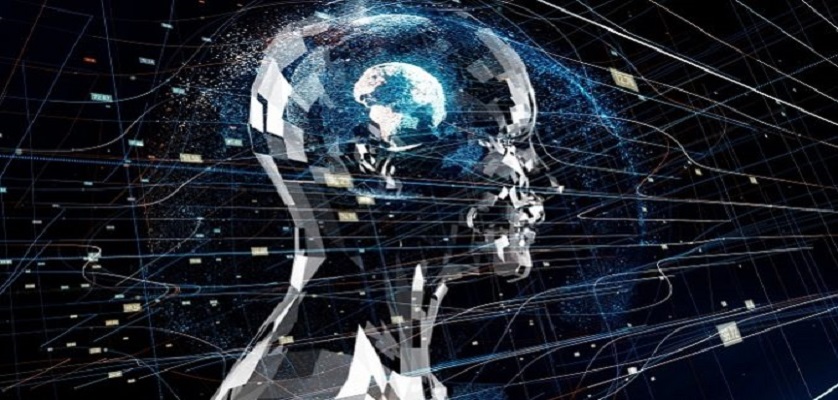In the era of technological advancement, some innovations gained attractions and masterpieces that went beyond artificial intelligence (AI). The potential of AI to revolutionize industries, improve efficiency, and enhance our quality of life is unspeakable. However, concerns have emerged regarding the ethical, social, and economic implications of this rapidly evolving technology. This article provides some information about different faces and the nature of AI, the difference between its dangers and advantages, and seeks to provide a balanced perspective on its impact on society.
Advantages of Artificial Intelligence
1. Auto work and Efficiency
Ai is one of the most powerful advantages, which saves lots of time, money, and workforce intensity. Industries ranging from manufacturing to customer service have harnessed AI-powered robots and chatbots to streamline processes, leading to increased efficiency, reduced operational costs, and improved overall productivity. AI-powered automation businesses give freedom to humans and to more creative roles in human resources, providing a more dynamic and adaptable workforce.
2. Data Analysis and Awareness
The massive amount of daily generated data can be harmful for human analysts. Artificial Intelligence can quickly read and understand data where human attention does not go away quickly. It has proved to be quite beneficial in fields like medical. In finance, AI-driven predictive models aid in risk assessment, fraud detection, and stock market analysis, enabling informed decision-making.
3. Personalization and User Experience
AI has revolutionized how businesses interact with consumers. By analysing user data, AI systems can deliver highly personalised experiences, tailoring product recommendations, content, and advertisements to individual preferences. This not only enhances user satisfaction but also drives customer engagement and loyalty. Virtual personal assistants like Siri, Google Assistant, and Alexa have become integral parts of our lives, making daily tasks more convenient and accessible.
4. Deep Scientific Knowledge and Research
AI has opened up new horizons in scientific research by accelerating the pace of discovery and innovation. Complex simulations, molecular modelling, and data-driven insights are helping researchers make breakthroughs in fields like drug discovery, climate modelling, and materials science.The ability to put huge data centres in the right place and test them properly has enabled a lot of capabilities and now they can easily do things that were difficult before.
Disadvantages of Artificial Intelligence
1. Job Risk
As AI-driven automation becomes more prevalent, concerns about job displacement have intensified. Repetitive and routine tasks are increasingly being taken over by machines, leading to the potential loss of millions of jobs across various industries. While historically, technological advancements have created new job opportunities, the rapid pace of AI development could outstrip the rate at which new roles are created, causing disruptions in the job market and contributing to economic inequality.
2. Prejudice and fairness
AI systems learn from the data they are trained on, and if that data contains biases, the AI can perpetuate and amplify those biases. This poses a significant ethical challenge, especially in domains like criminal justice and hiring, where biased algorithms can lead to unjust outcomes. Struggles with bias and fairness have highlighted the need for robust data preprocessing and algorithmic transparency to ensure AI systems are equitable and do not inadvertently discriminate.
3. Privacy and Security
The extensive collection and analysis of personal data raises concerns about privacy and security. AI systems rely on vast datasets to function effectively, and this often includes sensitive information. Unauthorised access to this data can result in identity theft, financial fraud, and breaches of personal privacy. Striking a balance between utilizing data for AI advancement and safeguarding individual privacy is a complex challenge that requires careful consideration of regulations and ethical standards.
4. Automatic and Self Control
The development of advanced AI systems with decision-making capabilities brings to the fore questions about autonomy and control. As AI algorithms become more complex, their decision-making processes can become opaque and difficult to interpret. This lack of transparency raises concerns about accountability when AI systems make critical decisions, such as those in autonomous vehicles or medical diagnoses. Ensuring that humans retain the ability to understand and intervene in AI-driven choices is paramount to prevent unintended consequences.
Keeping Artificial Intelligence in Balance
The dichotomy between the advantages and dangers of AI underscores the need for ethical and responsible development. Addressing the potential risks requires collaboration between governments, industries, and research communities to establish guidelines, standards, and regulations that promote the responsible use of AI technology. Key principles include transparency in AI decision-making, accountability for AI-generated outcomes, and active efforts to mitigate bias and discrimination.
Moreover, AI education and literacy play a pivotal role in shaping public discourse and dispelling misconceptions. Fostering an understanding of AI’s capabilities and limitations can empower individuals to make informed decisions about its integration into various aspects of society. By promoting AI education, societies can bridge the gap between technological advancement and public awareness, reducing fear and resistance while encouraging innovation.
Conclusion
Artificial Intelligence is really a very good and beneficial tool, which also helps a lot in increasing businesses and human resources. its use has proved useful in increasing automation and efficiency, and analyzing data and many other tasks, but still it is not possible to use it. Disadvantages such as threats to the job and it becoming uncontrolled and the losses due to this cannot be ignored.
The path forward lies in a balanced approach that maximises the benefits of AI while minimising its risks. Ethical considerations, responsible development, and ongoing research into mitigating AI-related challenges are essential for creating a future where AI serves as a force for good. As society navigates this technological frontier, informed decision-making and collaborative efforts will determine whether AI remains a dangerous double-edged sword or evolves into an advantageous ally.

